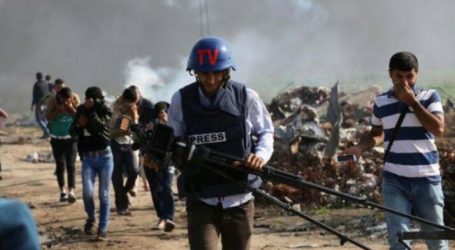EGYPTIAN MILITARY FORCES CLOSE 225 GAZA TUNNELS
El-Arish, 8 Rabiul Akhir 1434/ 18 February 2013 (MINA) – Egyptian forces have discovered over 225 tunnels under the border with the Gaza Strip, a military spokesperson said Sunday (17/2).
Egyptian military spokesperson Colonel Ahmed Mohamed Ali told Palestinian Ma’an news agency that the army is continuing with efforts to close down the network of underground tunnels.
“Each tunnel has several exits, including inside Egyptian houses, and thus can be difficult to detect. There may therefore be as many as over 500 tunnels,” he added.
Earlier this week, Egyptian forces flooded tunnels under the border with the Gaza Strip in a campaign to shut them down, Egyptian and Palestinian officials said, according to Ma’an reports monitored by Mi’raj News Agency (MINA), Monday.
Reporters saw one tunnel being used to bring in cement and gravel suddenly fill with water last Sunday, sending workers rushing for safety. Locals said two other tunnels were likewise flooded, with Egyptians deliberately pumping in water.
One tunnel owner said that 150-200 tunnels had been closed since an attack in Sinai last August, which left 16 Egyptian soldiers dead. Earlier on Monday (11/2), Egypt’s military closed two tunnels leading to Gaza. Egyptian soldiers arrested 10 worker in Rafah and shut two tunnels used to send goods to the Gaza Strip.
Families of the arrested workers staged a small demonstration against the arrests.
The tunnel network developed as a vital source of goods under Israel’s blockade of the coastal strip and Egyptian restrictions on the official Rafah crossing point.
Work conditions in the network of underground tunnels are notoriously dangerous, with rights groups saying that at least 230 people have been killed in tunnel collapses.
At one stage an estimated 2,500-3,000 tunnels snaked their way under the desert fence but the network has shrunk markedly since 2010.
Israel imposed its blockade for what it called security reasons in 2007, although human rights groups have called it a form of collective punishment.
The tunnel network developed as a vital source of goods under Israel’s blockade of the coastal strip and Egyptian restrictions on the official Rafah crossing point. (T/P06/E1)
Mi’raj News Agency (MINA)




